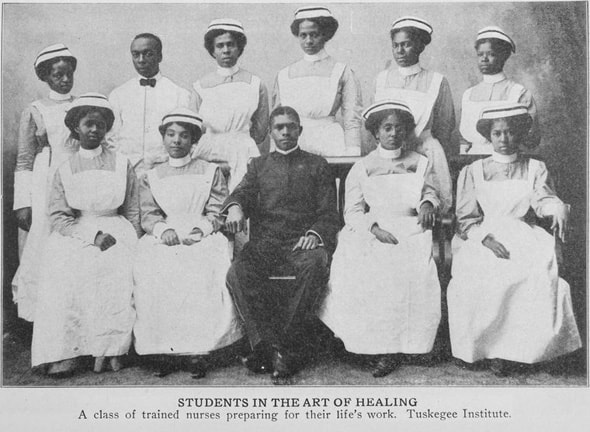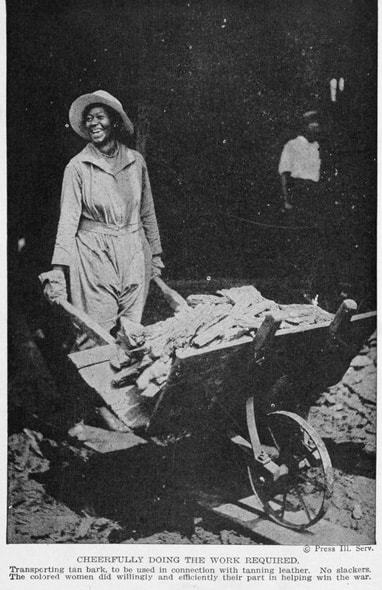black women during the war
|
Black women sacrificed as well. They contributed to the war effort in significant ways and formed the backbone of African-American patriotic activities. Clubwomen, many under the auspices of the National Association of Colored Women (NACW), led "liberty loan" campaigns, held rallies, and provided crucial material and emotional support for black troops. Women joined war service organizations such as the YWCA and the Red Cross as well as establishing their own groups, like the Women's Auxiliary of the New York 15th National Guard, to meet the specific needs of black soldiers.
|
The war also spurred an increase in political activism amongst black women. For the growing number of women who worked outside the home, the war created new opportunities for them to organize collectively and advocate for greater pay and equitable working conditions. Laundresses in the South formed associations and engaged in strikes to protest unfair treatment at the hands of their white employers. In Mobile, Alabama, for example, some 250 laundry workers walked off the job, insisting, "We are protesting against this discourteous treatment and we intend to stay out until our communications are answered and they agree to deal with our committee." Women and organizations like the NACW continued to protest against lynching and, with the suffrage movement reaching its apex, insisted upon the right of black women to vote.

